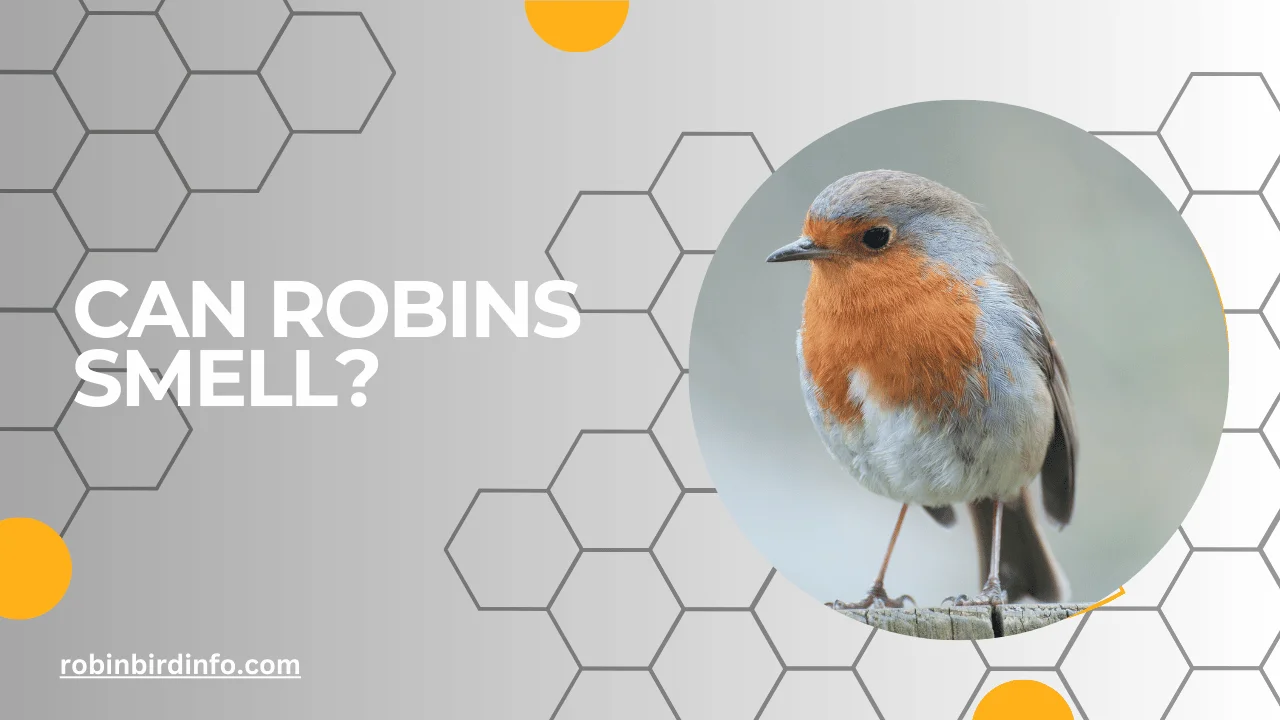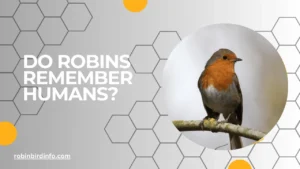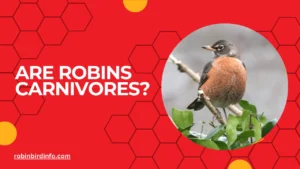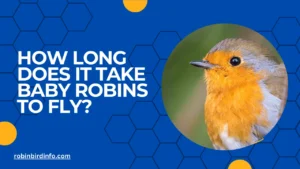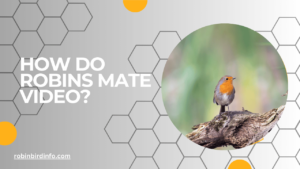We all know the classic image: a Robin perched on the lawn, diligently pulling worms from the ground.
Their sight seems razor-sharp, allowing them to locate these wriggling snacks with ease. But what about their sense of smell? Can these cheerful red-breasted birds sniff out a tasty meal, or a potential mate?
For years, the idea of birds having a well-developed sense of smell was largely dismissed. After all, their reliance on sight and hearing seemed more crucial for survival. However, recent research suggests a surprising truth – Robins, like many other bird species, might possess a hidden olfactory superpower.
This ability to detect scents could play a significant role in their daily lives, influencing everything from finding food to avoiding predators. So, ditch the image of the Robin solely relying on sight – there might be more to their world than meets the eye (or beak)!
Join us as we delve into the fascinating realm of Robin olfaction, exploring the science behind their sense of smell and its potential impact on their behavior. Buckle up, because this isn’t your average backyard birdwatching session – it’s a journey into the unseen world of a Robin’s sensory adventures!
Contents
- 1 Section 2: Robin Behavior and the Role of Smell
- 2 Section 3: Experimental Evidence
- 3 Section 4: The Impact of Environmental Factors
- 4 Section 5: Conservation Implications
- 5 Conclusion
- 6 FAQ’s
- 6.0.1 Can Robins smell food?
- 6.0.2 Do Robins use smell to find mates?
- 6.0.3 Can Robins smell danger?
- 6.0.4 How does air pollution affect a Robin’s sense of smell?
- 6.0.5 Can Robins distinguish between different scents?
- 6.0.6 How does a Robin’s sense of smell compare to other birds?
- 6.0.7 Can a Robin’s sense of smell be affected by illness?
Section 1: The Science of Bird Scent
While birds are often associated with keen vision and hearing, their sense of smell has long been underestimated. The olfactory system in birds, though less developed than in mammals, plays a crucial role in various behaviors.
The olfactory bulb and olfactory nerve are key components of this system, responsible for detecting and processing scent molecules.
The evolutionary significance of smell in birds is evident in their ability to locate food sources, find mates, and navigate long distances. While vision and hearing are undoubtedly important, smell can provide additional sensory information that can be vital for survival and reproduction.
Comparative studies have revealed that different bird species exhibit varying degrees of olfactory sensitivity.
While some species, such as vultures and kiwis, rely heavily on their sense of smell, others may rely more on visual and auditory cues. However, even species that are not primarily reliant on smell may still use it for specific tasks, such as foraging or mate selection.
Section 2: Robin Behavior and the Role of Smell
While Robins are primarily visual foragers, relying on their keen eyesight to locate worms and insects, smell may play a supporting role in their foraging behavior. For example, they may use smell to identify areas with abundant food sources or to locate specific types of prey, especially during low visibility conditions.
The role of smell in mate selection among Robins is less well understood. However, some studies suggest that birds may use olfactory cues to assess the quality of potential mates. Pheromones, chemical substances released by animals, can convey information about an individual’s genetic quality, health status, and reproductive fitness.
The importance of smell in nest site selection by Robins is still a topic of debate. While visual cues, such as the availability of nesting materials and the presence of predators, are likely more important, olfactory cues may play a secondary role in guiding nest site selection.
Section 3: Experimental Evidence
Laboratory studies have shown that birds, including Robins, possess functional olfactory systems. Researchers have used various techniques, such as electrophysiology and behavioral tests, to investigate the sensitivity of birds to different odors.
Field studies have provided further evidence for the role of smell in bird behavior. Researchers have observed birds responding to odor cues in their natural environment, such as foraging for food or avoiding predators. However, interpreting these observations can be challenging, as multiple sensory cues may be involved.
Limitations of Research Studying bird olfaction can be challenging due to the technical difficulties involved in measuring olfactory responses and the complexity of bird behavior. Additionally, the interpretation of behavioral observations can be subjective and prone to bias.
Section 4: The Impact of Environmental Factors
Air pollution can impair the olfactory abilities of birds by interfering with the detection of odor molecules. This can have negative consequences for foraging, mate selection, and predator avoidance.
Habitat loss and fragmentation can also impact the olfactory environment of birds. By reducing the diversity of habitats and the availability of natural odor cues, habitat loss can limit the opportunities for birds to use their sense of smell.
Climate change can alter the distribution of odor cues and the timing of seasonal events, potentially affecting bird behavior and survival. Changes in temperature and precipitation patterns can influence the release and dispersal of odors, impacting the ability of birds to detect and respond to these cues.
Section 5: Conservation Implications
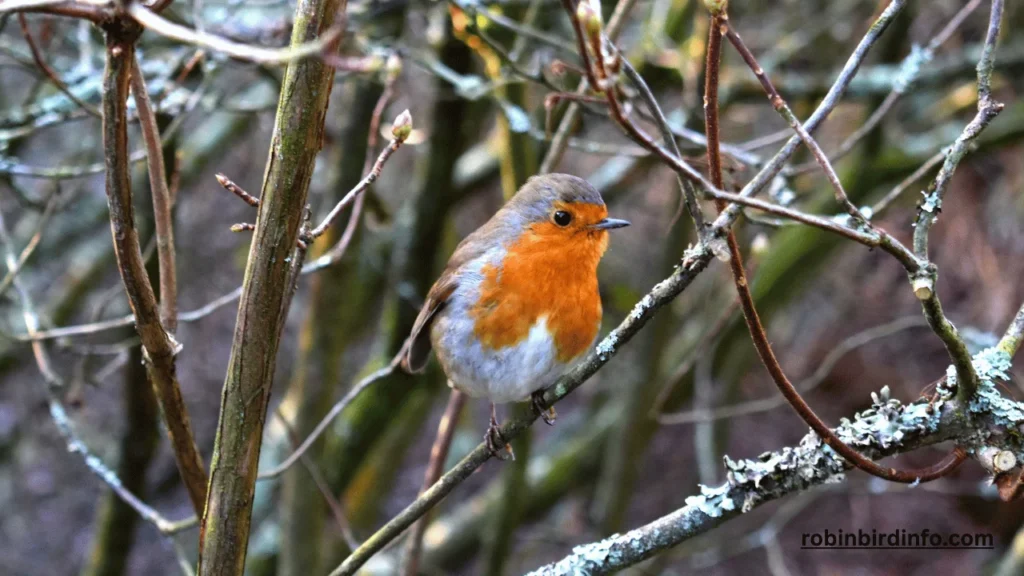
Protecting olfactory habitats is crucial for the well-being of birds, including Robins. Preserving diverse ecosystems and reducing habitat fragmentation can help ensure that birds have access to the olfactory cues they need for survival and reproduction.
Reducing air pollution is essential for protecting the olfactory abilities of birds. By reducing emissions from vehicles, industries, and other sources, we can improve air quality and enhance the sensory experiences of birds.
Citizen science and research can help us better understand the role of smell in bird behavior and ecology. By participating in birdwatching and reporting observations, citizen scientists can contribute to valuable research and conservation efforts.
Conclusion
While the role of smell in Robin behavior may not be as well-understood as their visual and auditory senses, emerging research suggests that it plays a significant role in their lives.
By appreciating the complexity of Robin sensory abilities, we can gain a deeper understanding of these fascinating birds and their ecological importance.
Protecting their habitats and minimizing human impact on their environment is crucial for ensuring the survival of these beloved creatures.
FAQ’s
Can Robins smell food?
While not as reliant on smell as some other bird species, Robins can likely use their sense of smell to locate food sources, especially when visual cues are limited.
Do Robins use smell to find mates?
The role of smell in Robin mate selection is not fully understood. However, it’s possible that they may use olfactory cues to assess potential mates.
Can Robins smell danger?
Robins may use their sense of smell to detect predators or other threats. For example, they may be able to detect the scent of a predator’s presence.
How does air pollution affect a Robin’s sense of smell?
Air pollution can impair a Robin’s sense of smell by interfering with the detection of odor molecules. This can negatively impact their ability to find food, mates, and avoid predators.
Can Robins distinguish between different scents?
While there is limited research on this topic, it’s likely that Robins can distinguish between different scents. Their olfactory system may allow them to differentiate between the scents of various food sources and potential threats.
How does a Robin’s sense of smell compare to other birds?
Compared to some other bird species, such as vultures and kiwis, Robins have a less developed sense of smell. However, they still possess olfactory abilities that can be important for their survival.
Can a Robin’s sense of smell be affected by illness?
Illness can affect a Robin’s overall health, including their sensory abilities. If a Robin is sick, it may have difficulty detecting odors, which could impact its ability to find food and avoid danger.

